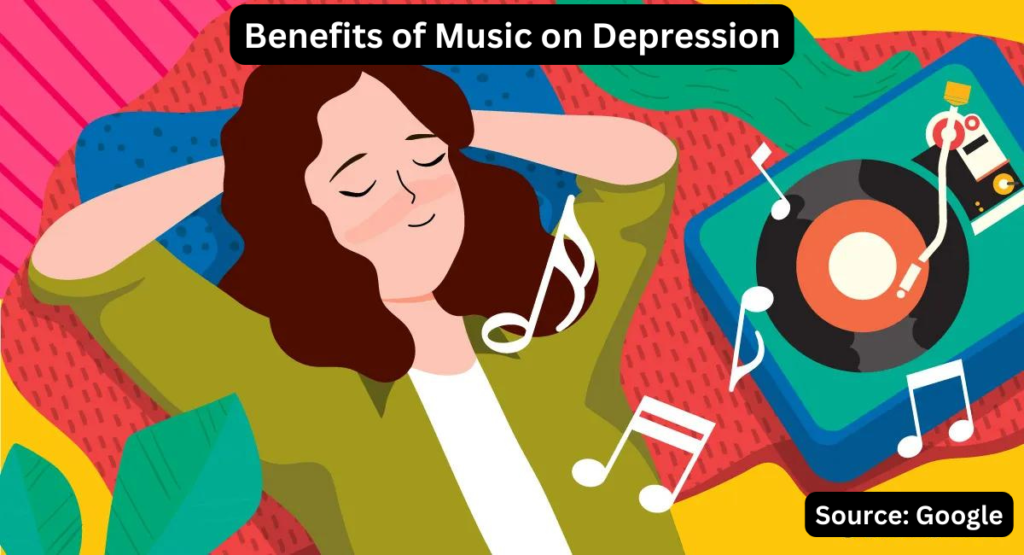
In a world where the prevalence of depression is on the rise, individuals are seeking holistic approaches to complement traditional treatments. One such avenue gaining recognition is the therapeutic impact of music. The phrase “Benefits of music on depression” encapsulates a realm of possibilities for alleviating the burdens of this mental health condition.
Unveiling the Power of Melody: Benefits of music on depression
Music, an ageless and universal language, has the profound ability to penetrate the depths of our emotions. From the very first chord, it has the potential to be a salve for the wounded soul. The benefits of music on depression extend beyond mere enjoyment, delving into the realms of psychological healing.
The Neurological Symphony
Research indicates that music can stimulate the release of neurotransmitters like dopamine, commonly associated with pleasure and reward. In the context of depression, where these neurotransmitters may be deficient, music acts as a catalyst, creating a symphony of positive responses within the brain. Their are many benefits of music on depression.
A Harmonious Escape
Depression often imprisons individuals in a cycle of negative thoughts and emotions. Music serves as an escape route, providing a temporary reprieve from the relentless onslaught of despair. It creates a space where the mind can wander, unburdened by the weight of depressive tendencies.
Rhythmic Therapy
The rhythmic elements of music have a unique impact on mood regulation. Upbeat tempos can induce a sense of energy and motivation, counteracting the lethargy often associated with depression. On the flip side, slower tempos can offer solace, facilitating a meditative state conducive to introspection and emotional release.
A Personal Soundtrack for Healing
Tailoring music choices to personal preferences can enhance the therapeutic effects. Whether it’s classical compositions, contemporary pop, or instrumental beats, the key lies in finding the melodies that resonate with the individual. Crafting a personalized soundtrack empowers individuals to curate a sonic journey towards healing.
Music as an Emotional Conduit
Expressions that are difficult to articulate verbally often find a voice through music. It serves as an emotional conduit, allowing individuals to externalize and process complex feelings. This emotional release can be cathartic, fostering a sense of emotional clarity and relief.
Social Harmony
Beyond its individual impact, music has the power to create social connections. Engaging in musical activities, such as group performances or even attending concerts, can cultivate a sense of community. Social support is a crucial component in battling depression, and music provides a harmonious medium for fostering connections. The benefits of music on depression are extensive.
The Mind-Body Serenade
The mind and body are interconnected in ways that we are only beginning to understand. Music has the ability to influence both realms simultaneously. Physiologically, it can lower cortisol levels, reducing stress. Psychologically, it can elevate mood and enhance cognitive function. The harmonious interplay between mind and body contributes to an overall sense of well-being.
Integrating Music into Treatment
Recognizing the therapeutic potential of music, mental health professionals are increasingly incorporating it into treatment plans. Music therapy, a structured and evidence-based approach, involves the use of musical interventions to address specific therapeutic goals. It is a complementary tool that aligns seamlessly with conventional therapeutic methods.
Creating a Musical Routine
To maximize the benefits of sound on depression, incorporating it into daily routines is essential. Whether it’s listening to rhythm during morning rituals, engaging in music-based exercises, or dedicating time for active notes listening, consistency is key. The cumulative impact of a regular musical routine can contribute significantly to mental well-being.
Exploring Diverse Musical Modalities
The beauty of chords lies in its diversity. Different genres, instruments, and styles cater to a myriad of preferences. Experimenting with various musical modalities allows individuals to discover what resonates most profoundly with their emotional landscape. This diversity ensures that the therapeutic journey is both engaging and personalized.
Overcoming Barriers to Musical Engagement
While the benefits of music on depression are substantial, barriers to engagement exist. Some individuals may face challenges related to accessibility, cultural factors, or personal preferences. Acknowledging and addressing these barriers is crucial in ensuring that the therapeutic potential of music is accessible to all.
Read more:
FAQs
How does music help in depression?
Music can help in depression by triggering positive emotions, providing a distraction from negative thoughts, reducing stress levels, promoting relaxation, and offering a sense of connection and comfort, thus improving mood and overall well-being.
What are 5 advantages of listening to music?
Listening to music can reduce stress, elevate mood, enhance cognitive function, improve sleep quality, and boost motivation. Additionally, it can serve as a form of self-expression and a means of connecting with others.
What are the benefits of music on depression?
Music benefits mental health by regulating emotions, reducing anxiety and depression symptoms, promoting relaxation, improving focus and concentration, enhancing self-awareness, and fostering social connections, all of which contribute to overall psychological well-being.
Do people with depression like music?
While preferences may vary, many people with depression find solace and comfort in music. Music can serve as a coping mechanism, offering a means of expressing emotions and providing a sense of connection and understanding during difficult times.
Conclusion
In conclusion, the exploration of the benefits of music on depression unveils a symphony of healing possibilities. From the neurological responses to the emotional release and social connections, notes emerges as a versatile and accessible tool in the battle against depression. By integrating rhythm into daily routines and embracing its therapeutic potential, individuals can embark on a harmonious journey towards mental well-being. As the melody of healing resonates, the transformative power of music becomes an invaluable ally in the quest for emotional resilience and recovery.
